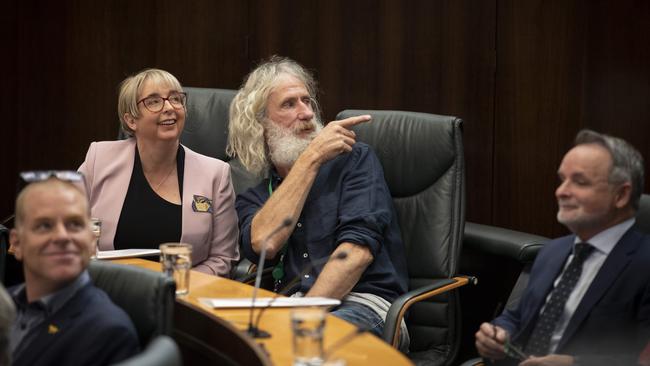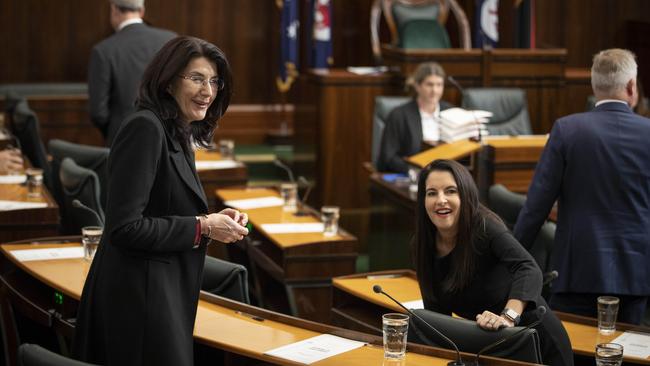Election makes for slow year for Tasmania’s parliament
In a year when Tasmania’s parliament went slow, Mercury readers were split on whether restoring it to 35 seats was successful.

Tasmania
Don't miss out on the headlines from Tasmania. Followed categories will be added to My News.
Tasmania’s state parliament has enjoyed one of its least productive years this century as an election and a record low number of sitting days combined to reduce the number of bills passed to a trickle.
The House of Assembly met on just 41 days for regular sittings, budget estimates and government business enterprise hearings in 2024, the lowest number of sitting days since 2006.
The average number of sitting days this century is just over 48.
Parliament met for the equivalent of three fewer sitting weeks in 2024 than it did at the turn of the century when 58 sitting days were commonly achieved.
Parliament passed 32 bills in 2024 a figure that was the equal second-lowest number in 25 years, besting only the 2014 figure of 28 bills.
Our politicians averaged to pass 0.8 pieces of legislation a day — half the productivity of the parliament that sat 20 years ago — which met 45 times to knock out 1.6 bills per sitting day.
In 2001, parliament passed more than two bills a day.

Mercury readers were divided over whether the restoration of the House of Assembly to 35 members at this year’s state election had worked well.
Of 2977 respondents to a question in this year’s Great Summer Survey, 51.9 per cent said it had. The move had 53 per cent support in the 2019 survey.
Just 16 per cent of Mercury readers surveyed in the Great Summer Survey felt that the state’s MPs should be given a pay rise.
The figure was the same last year although it has improved from the 11 per cent support recorded in 2019.
The Tasmanian Industrial Commission started its inquiry into Salaries, Allowances and other Benefits for Members of the Tasmanian Parliament in November 2019.
Tasmania’s state MPs receive a base salary of $140,185 and last received a pay rise around June 2018 – the same two per cent as public sector workers. Members also receive an electorate allowance of up to $53,000 and a vehicle allowance of $15,000, plus communications expenses.
Politicians’ pay packets have been frozen since — CPI has risen 17.2 per cent during the period, so they’ve taken a big pay cut in real terms.
In 1993, Tasmanian MPs voted to link their pay to 90 per cent of the rate of a federal MP, leading to an immediate 40 per cent pay rise.
The move was not popular with the public: bumper stickers proclaimed “40% never forget” and the “Extremely Greedy 40% Extra Party” contested the state election.
Parliament resumes on March 4 after the summer break. There are 49 regular, estimates and GBE sitting days scheduled for 2025, just above average.



